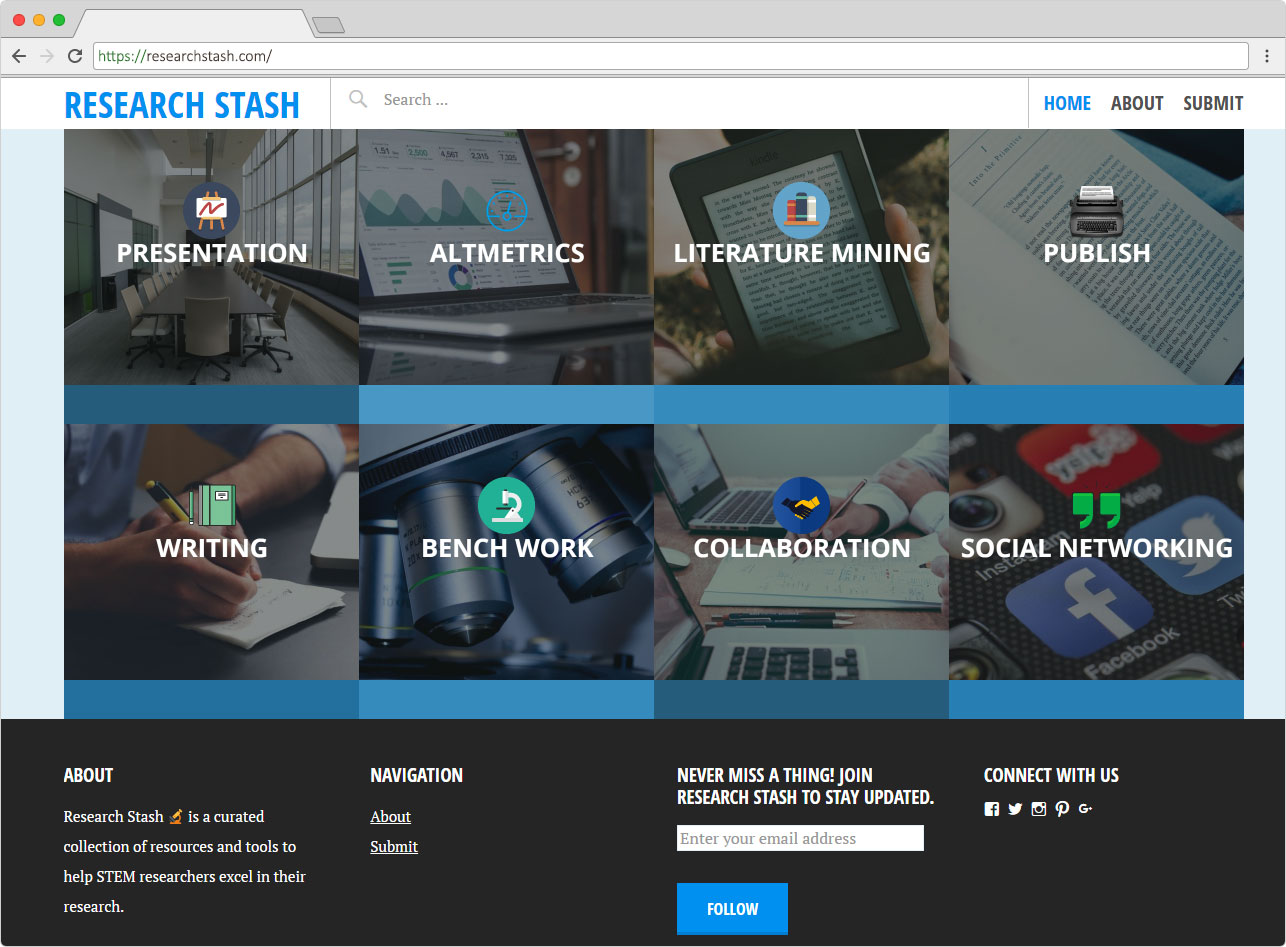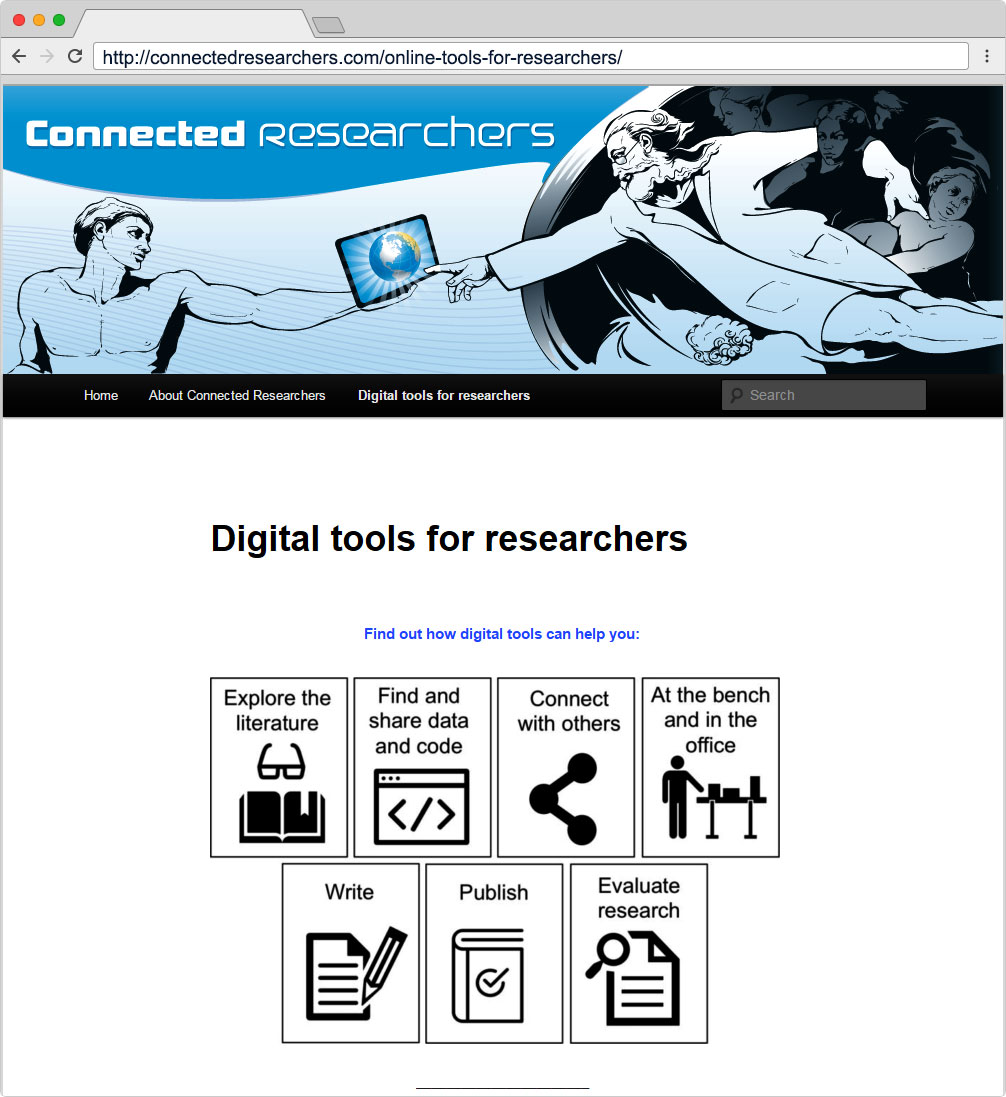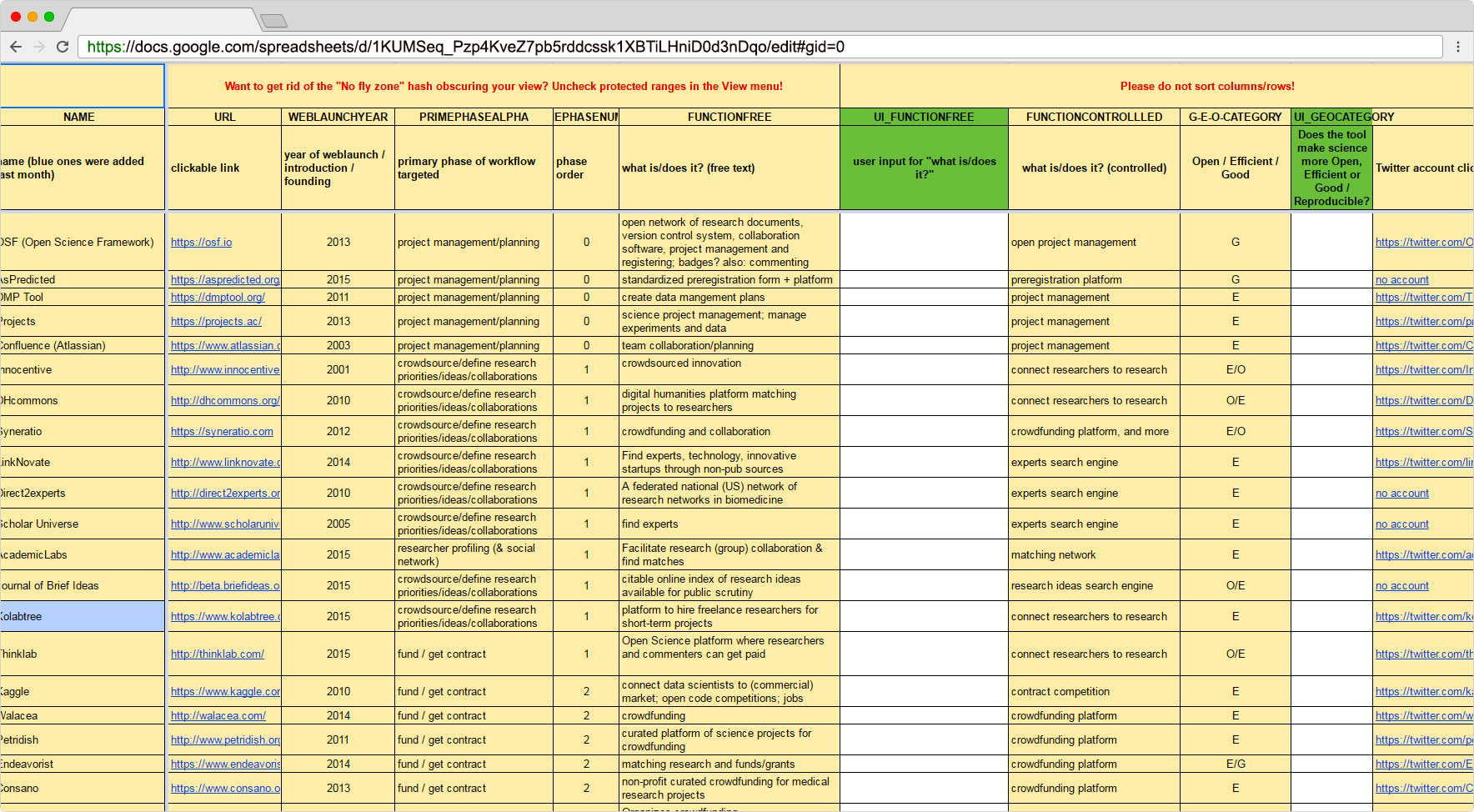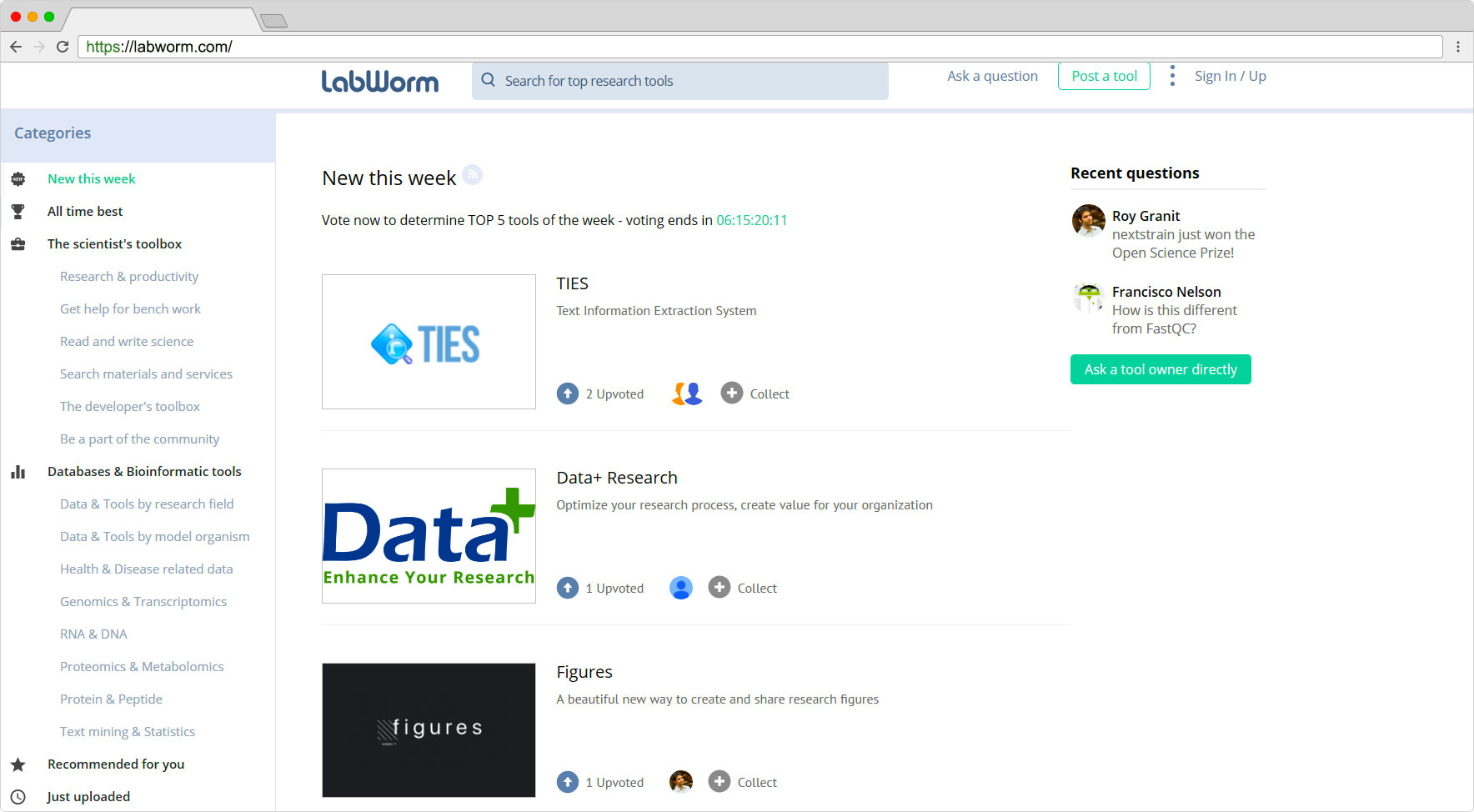Research tools: From A for Altmetrics, B for Bench Work to C for Collaboration
Maintaining an overview of tools that support scientists in their work is difficult because of the continual arrival of new tools. Toolsets for research tools provide a useful service here and also make the practicing of open science easier. We would like to present a few of these collections.
Research Stash
Research Stash, a new toolset for research tools, appeared recently. Research Stash is a curated overview of tools for the support of researchers from the STEM subject areas. The tools are in each case provided with a short description and are subdivided into eight categories: “Presentation”, “Altmetrics”, “Literature Mining”, “Publish”, “Writing”, “Bench Work”, “Collaboration” and “Social Networking”. A proportion of the tools listed will also surely be of interest for researchers from different subject areas. Suggestions for additional tools can be added.

Digital Tools for Researchers
Digital Tools for Researchers, a list with a variety of research tools, has been established for a long time. The tools are subdivided into the categories “Explore the literature”, “Find and share data and code”, “Connect with others”, “At the bench and in the office”, “Write”, “Publish” and “Evaluate research”.

400+ Tools and innovations in scholarly communication
101 Innovations in scholarly communication is a project that has been coordinated by the Utrecht University Library with the objective of promoting open science workflows. One of the results so far achieved by the project is an overview of tools.
The tools for scientific communication are assigned to the phase of scientific work in which they can be used “Discovery”, “Analysis”, “Writing”, “Publication”, “Outreach” and “Assessment”. They are arranged according to the year that they were created.
The collaboratively created toolset “400+ Tools and innovations in scholarly communication” in the form of a table within a Google Doc is being continuously expanded. The toolset now contains more than 660 tools. A variety of information about each tool is contained in a large number of columns in the table.

LabWorm
The toolset that probably has the greatest range of functions is LabWorm, a tool platform that has been created collaboratively. LabWorm considers itself to be a community of scientists for scientists who continuously expand and assess the toolset. And in actual fact, a range of new tools are listed there each week. The goal: the idea that the individual researcher has to spend less time searching for suitable tools.
Tools can be found either via a search function, via their classification into categories or also in the collections of other members. Some of the categories are: “Research and productivity”, “Get help for bench work”, “Read and write science” or “Search materials and services” and each of these categories possess sub-categories as well as categories with primarily scientific databases and tools. In addition, there are categories with new tools, personalised recommendations as well as the tools that have received the best ratings overall. Community members who are registered also receive weekly a list of the five tools with the best ratings. Each of the tools contained has an individual view that contains, among other things, a short description and upvotes from LabWorm members. Additionally, tags are contained, similar tools are displayed, questions can be asked and experiences with the tool can be discussed. Finally, members can add a tool to their personal collection.

What do you recommend?
Which toolsets for research tools do you know and would you recommend?
YES! – When Students Develop Ideas for the Future
The "YES! – Young Economic Summit", organized by the ZBW – Leibniz Information...
